Retail Hackathon: Creating a New Experience Together
Everyone remembers how photo studios looked like in the ’90s: they were fully stuffed with KODAK brand, from branded shelvings and posters to photo envelopes. KODAK, being successful in establishing a new niche market, had overlooked innovative technologies, and that fact undermined its competitiveness. At the turn of millennia, KODAK ranked second in the digital cameras market, however, its business activity conflicted with the common sense of commercial enterprise: KODAK did not get profit from selling cameras.
Another subject that cannot be ignored is that Nokia was one of the most prosperous companies in the early 2000s. Its history is really amazing: from the pulp factory to the leader among mobile phone manufacturers. To be not wordy, in good times Nokia sold more than 250 million mobile phones per year, its turnover was equivalent to 1/5 Finland’s GDP, and the company value excessed the value of Mercedes-Benz and Toyota has taken together. However, Nokia couldn’t withstand competition and it was acquired by Microsoft in 2014. As for today, the Nokia case is a remarkable example of how following market innovations can play a significant role in a company’s success.
How companies approach innovative technologies
Taking into account the bitter experience of the above-mentioned companies, the others are trying to do their best in order not to overlook innovative technologies that can undermine their competitiveness. Generally, every company has 3 courses of development:
- to be a pioneer – to develop one’s own technologies and consolidate market position;
- to ask other companies for help in developing and providing assistance in introducing innovative solutions;
- to buy technology or solutions pre-existing on the market and to adjust it to the company’s business processes.
For example, Facebook actively uses the first case by means of internal hackathons. Such Facebook features as ‘like’, ‘feed’, and ‘chat’ were invented at hackathons. This is how UI/UX design works for online social platforms.
What is a hackathon?
For a better understanding, a hackathon is an informal meeting of developers, that usually takes place on weekends during which developers work on their ideas. Hackathons are held either for the company employees or for all comers. Such a format is relatively new and appeared with the development of computer technologies. The name comes from the combination of two words “hack” and “marathon”.
The Hackathon trend was also supported by leading companies, and representatives of traditional business, in particular, from the retail and logistics industries. At the end of 2017, Walmart organized the “Walmart Labs Hackathon!” and logistics giant “Maersk” – Maersk Tankers Hackathon.
The companies, organizing and participating in hackathons, are aiming:
- to find a solution to particular business challenges;
- to look at the challenges from another perspective;
- to meet talented developers;
- to test the idea quickly;
- to find the best talents;
- to be aware of events and technologies on the market.
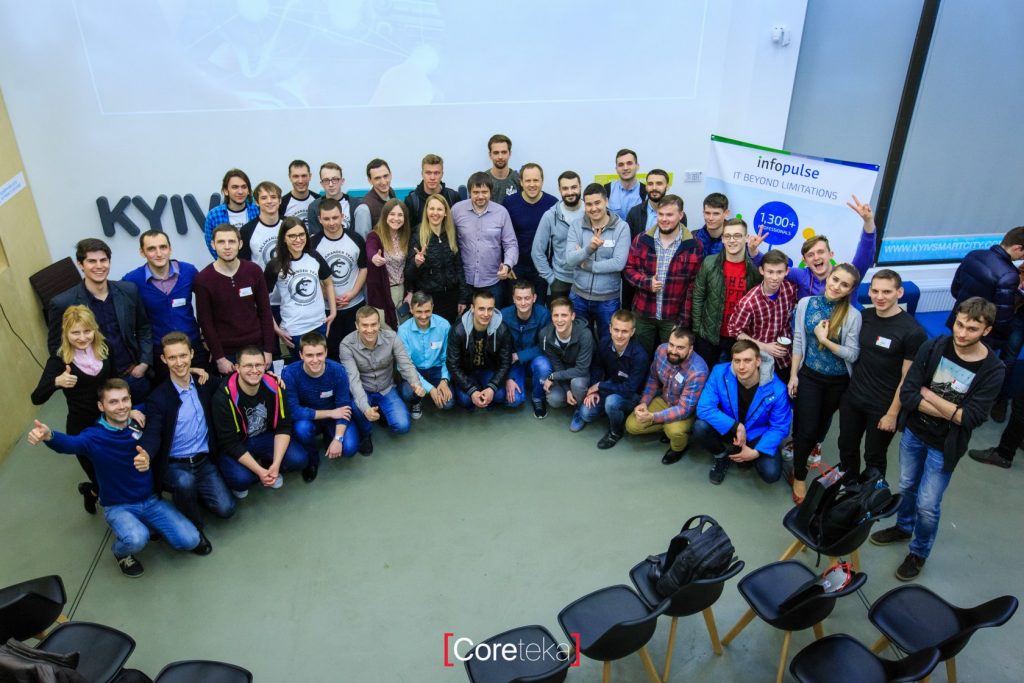 In Ukraine, a hackathon is a trendy format of events: 63 hackathons were held in 2016, 64 in 2017, and 33 in the first half of 2018 (according to DOU).
In Ukraine, a hackathon is a trendy format of events: 63 hackathons were held in 2016, 64 in 2017, and 33 in the first half of 2018 (according to DOU).
Hackathons in Ukraine can be divided into 3 main groups:
- on the basis of technology;
- devoted to a specific subject;
- directed to solve specific business challenges.
The last one is more common in the world but it is still gaining popularity in Ukraine.
CoreTeka Retail & Logistics Hackathon
CoreTeka Retail & Logistics Hackathon is one of the latest hackathons held in Ukraine including challenges from businesses. The event brought together more than 60 participants from all over Ukraine and 9 business challenges from Metro Cash & Carry Ukraine, Raben Ukraine, DTEK, Citrus, and UMT. 8 teams chose to work on business challenges instead of presenting their own projects.
CoreTeka brings together the IT-world and the world of retail and logistics. Teams have the possibility to create solutions and to test them in terms of real business processes. I think that’s what’s missing at hackathons where business representatives are not presented.
Maria Kudinova, Jury, mentor, Business Analyst, CRM innovations, METRO Cash&Carry Ukraine
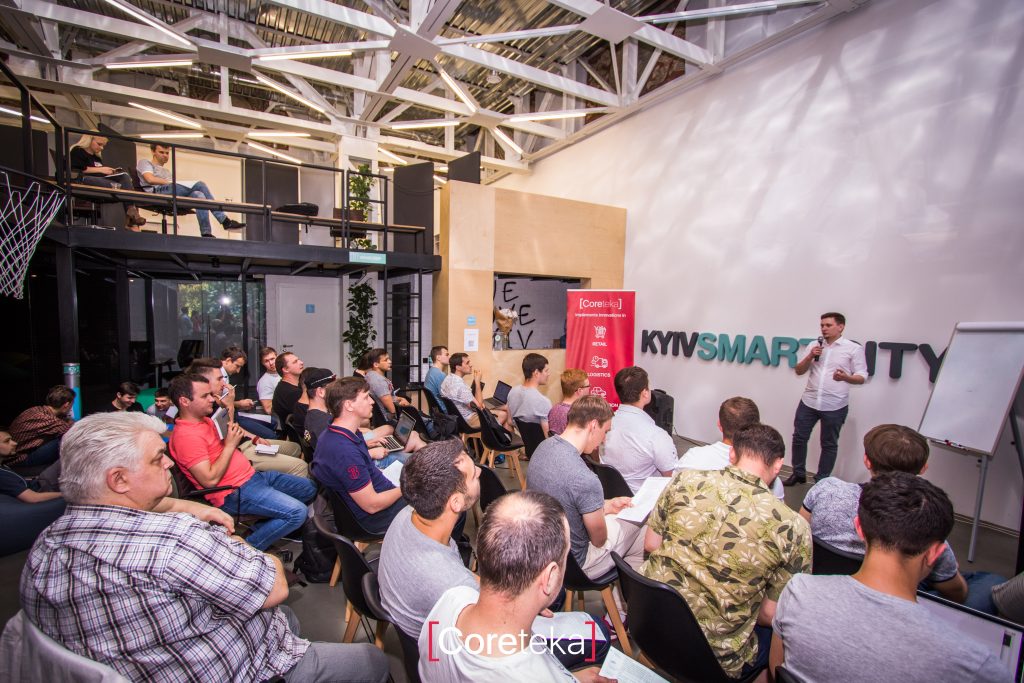
How it was to participate CoreTeka Retail & Logistics Hackathon
Business representatives were pleasantly surprised that several teams worked on one challenge simultaneously. For instance, four teams were working on the DTEK challenge “Visualization system of rail wagons’ position” and three teams were working on the Сustomers challenge navigation on a trading floor presented by Metro Cash & Carry Ukraine.
Teams are not just blindly solving challenges. They are trying to deeply understand and rethink tasks over. Sometimes it occurs that businesses realise that they need to solve another problem.
Pavlo Ryzhii, Jury, Innovations Manager, Philip Morris Ukraine
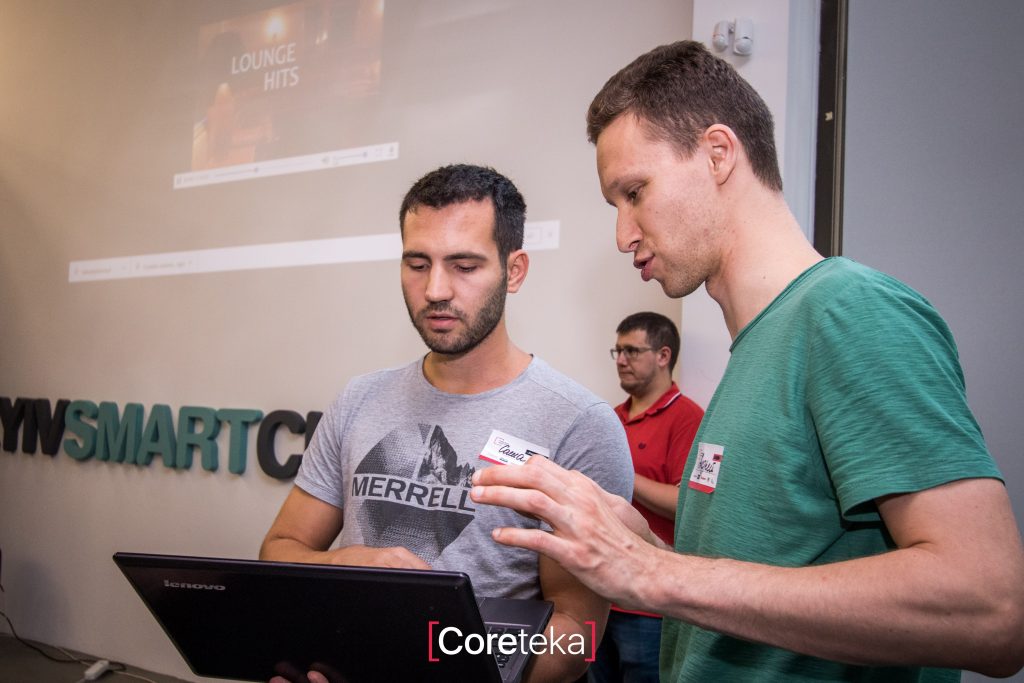 Mentors and jury were impressed by the real demos of participants’ solutions. In particular, one team that was solving the UMT challenge “control of trucks driving up the ramp”, recorded the video involving team members’ cars. Another team, working on the Raben challenge “Adjustive part for other consignment bills”, has developed a general program for all types of consignment bills and demonstrated it by printing one sample during the presentation. Read more about supply chain traceability.
Mentors and jury were impressed by the real demos of participants’ solutions. In particular, one team that was solving the UMT challenge “control of trucks driving up the ramp”, recorded the video involving team members’ cars. Another team, working on the Raben challenge “Adjustive part for other consignment bills”, has developed a general program for all types of consignment bills and demonstrated it by printing one sample during the presentation. Read more about supply chain traceability.
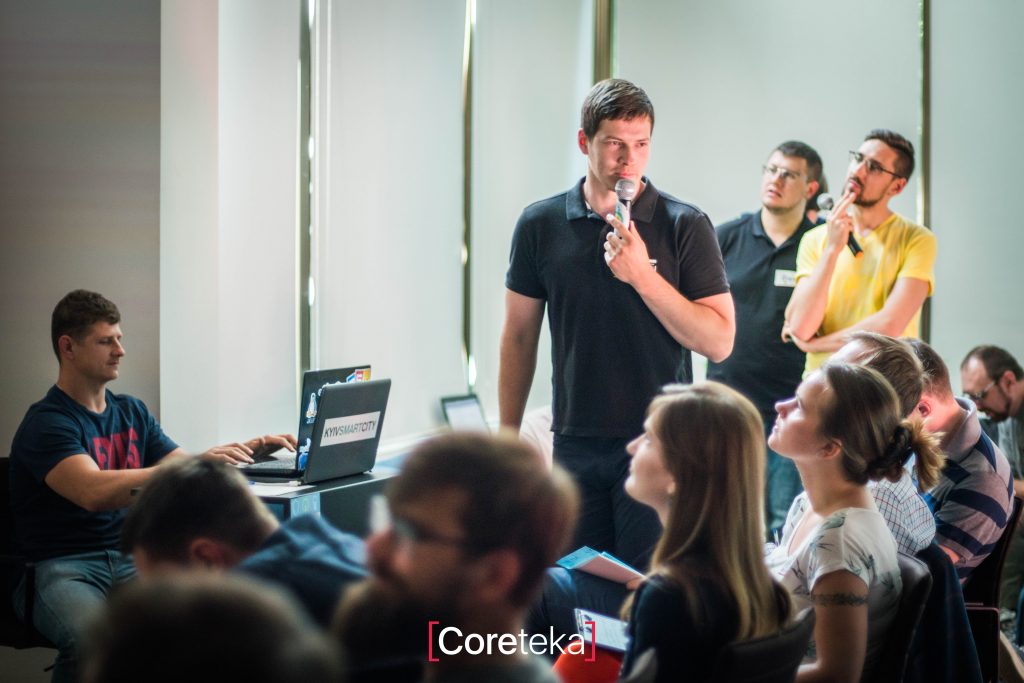
Taking into account the variety of proposed solutions, the companies received not only one but a few solutions to their challenges, and that enabled them to have other ways to look at the issue.
Most of all, I liked real challenges from companies and several solutions presented by 3-4 teams.
Max Yakover, Jury, Managing Partner, CEO, UNIT.City
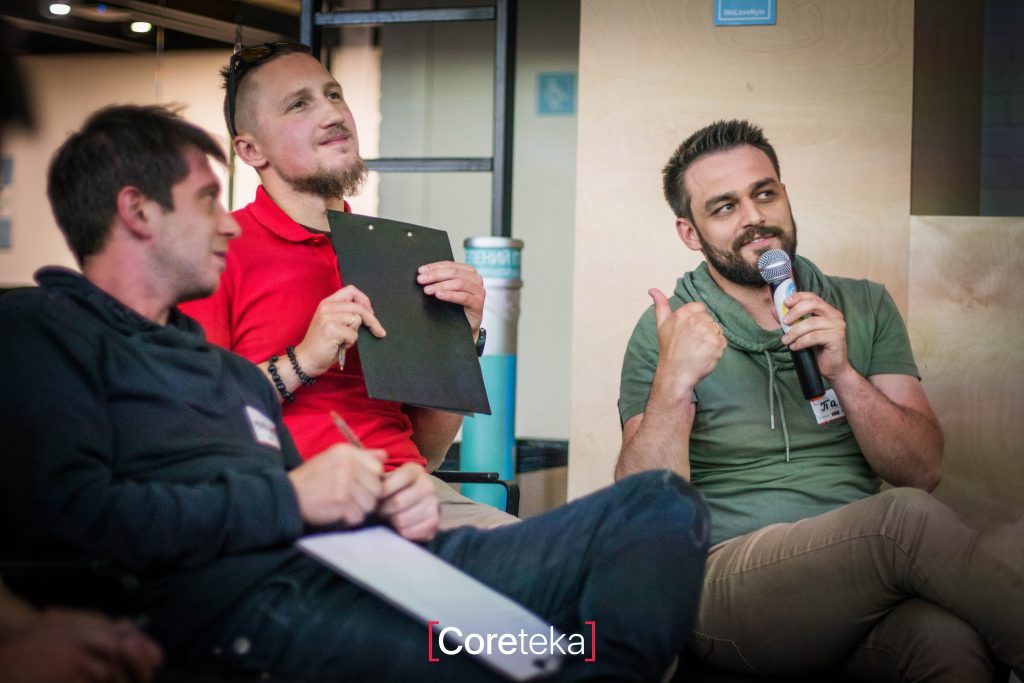 Except for solutions provided by participants, the companies have received useful feedback from colleagues and experts.
Except for solutions provided by participants, the companies have received useful feedback from colleagues and experts.
Final words
In general, that was not the first time that Coreteka organized thematic events. The last year was marked by a series of events devoted to automotive themes. CoreTeka Automotive Hackathon was one of the most outstanding among them. Compared to the classic hackathon format that was held the previous year, the business challenge format turned out to be more productive for all parties. This conclusion is based on feedback from participants, mentors, and the jury.
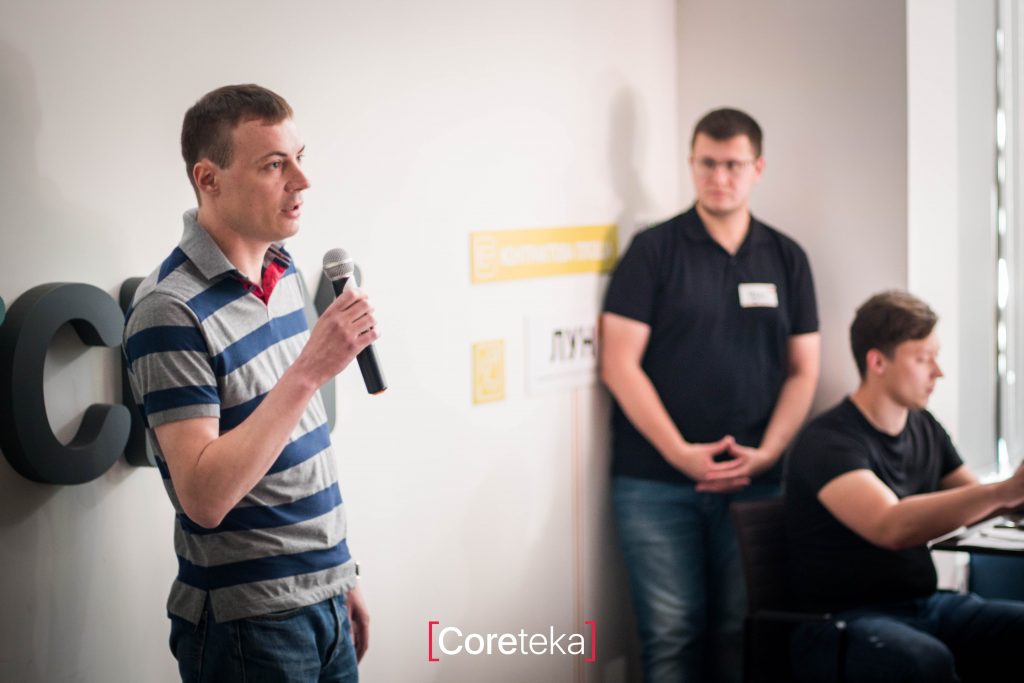 We would like to continue supporting the trend of effective hackathons with the business representatives’ involvement who are eager to keep abreast with innovative technologies and are open to experiments. Join our events!
We would like to continue supporting the trend of effective hackathons with the business representatives’ involvement who are eager to keep abreast with innovative technologies and are open to experiments. Join our events!

 Category:
Category:  Tags:
Tags: 

